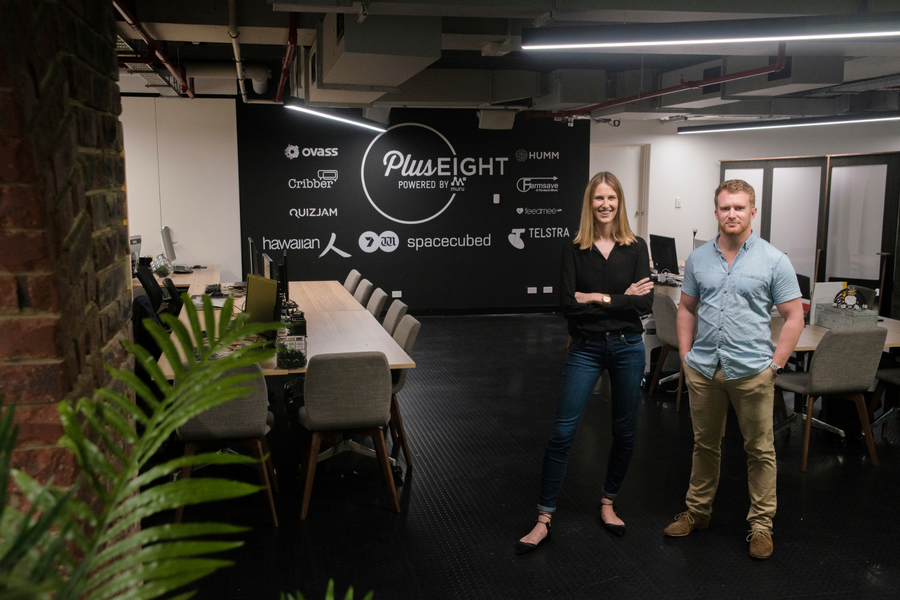If you think about the layout of a worksite, for most what will first come to mind is an image of tradies scattered across the highs and lows of a structure being built. Managing employees over an open area full of potential dangers is difficult, and as such it’s one that a number of startups entering the market have looked to solve.
One of these solutions is Safesite, an Australia-founded startup aiming to facilitate safety management on worksites through sharing and analytics via an app.
Another is Perth-based Cribber, a new player in the space biting down on facilitating communication between tradies and site managers for a small monthly cost. The Cribber platform allows managers to share information with their workers and stakeholders through a content “bulletin board”.
Acting like a private social stream, tradies around a worksite are able to view content, while site managers are able to view who has engaged with it for the purpose of ensuring compliance and employee engagement.
Mike Watson, who developed Cribber alongside cofounder Jasmin Ward, explained that the solution was built to fit the on-the-go, deskless lifestyle of tradies, who typically don’t access traditional communication or project management tools.
“Everyone on the worksite is on their phone in the crib room and when they’re around the site. We knew most of the frontline workforce wasn’t going to have a desk and a computer, so the app is the way we access them,” he said.
Watson’s insights came directly from within the construction industry, where he spent 10 years working as an engineer on worksites in both Australia and the Middle East.
Here, Watson explained he noticed a distinct lack of engagement with the way communication was dished out to site workers on a daily basis.
“In a way it was really patronising, and a lot of the time the workers wouldn’t retain the information depending on who was sharing it. So I left my job between September and August last year and we began working on it,” said Watson.
The startup entered Perth’s Founder Institute incubator program, which helped push the early stage idea towards commercialisation. Key to progressing through the incubation process, Watson said, was the focus both cofounders had on conducting market research, a process which helped the pair “validate” their ideas.
“We went out to conduct 100 customer reviews to really nail down what the problem was that we were solving. That really helped us get some traction. Once we had some traction and a little bit of revenue it was easier to get to the next stage,” he said.
The next stage for the business came in the form of joining the Plus Eight accelerator program, run in conjunction with muru-D, earlier this year, which will provide the startup with $40,000 in seed funding and industry insight once the program rounds up in a few months’ time.
While developing Cribber, Watson said the startup took into mind potential competitors, which would help define the product’s point of difference as a communicative and compliance focused tool.
“We know there are lots of other apps and management systems out there that do inspection forms and reporting and that type of thing. Our assessment is targeting the front line workforce, while those other tools are mainly used for supervisors and managers,” Watson added.
In Cribber’s current model, workers interact with content rather than post it themselves, with Watson saying that will be open for change in coming updates. Interaction typically comes in the form of opening a post and reading it, but tradies are also able to e-sign a document confirming they’ve read it if requested by a manager.
Through the app, tradies are able to receive push notifications is a message pops up while they’re working, and also share content online with family and friends. For site managers, content is posted and curated through an online web portal.
“They create a moderated feed of information that’s supposed to be quite direct and avoid a lot of the noise you find in other communication tools out there. They can also invite other users and create teams to split up users, to customise content to go to different groups,” said Watson.
According to Watson, a typical day will see at least three to four bulletins going out, across things like traffic management plans, daily safety notices, and weather reports. The cofounder added that Cribber is also intended for other side content too, such as work events and bus timetable postings for remote jobs.
“Then on the compliance side, if the admin sends out something that they want to know that all their employees have read and understood, they can send out a request for that,” he explained.
Looking to further empower Cribber’s compliance and communicative potential, the startup is also looking into adding other analytical metrics such as engagement time and response speed.
“Eventually we’ll add coaching around the bulletins, so analysing what the message is and seeing what words and content can help improve the effectiveness of communication,” Watson added.
Since Cribber’s target industries of mining, construction, and oil already contain “some big players”, according to Watson, the startup will look to focus on setting itself apart and growing a reputable basis through its first client companies.
With Canadian and New Zealand businesses already taking interest, Cribber will look to further its local and global reach through the raising of up to $500,000 in seed funding for development.
Image: Jasmin Ward & Mike Watson. Source: Supplied.




















Trending
Daily startup news and insights, delivered to your inbox.